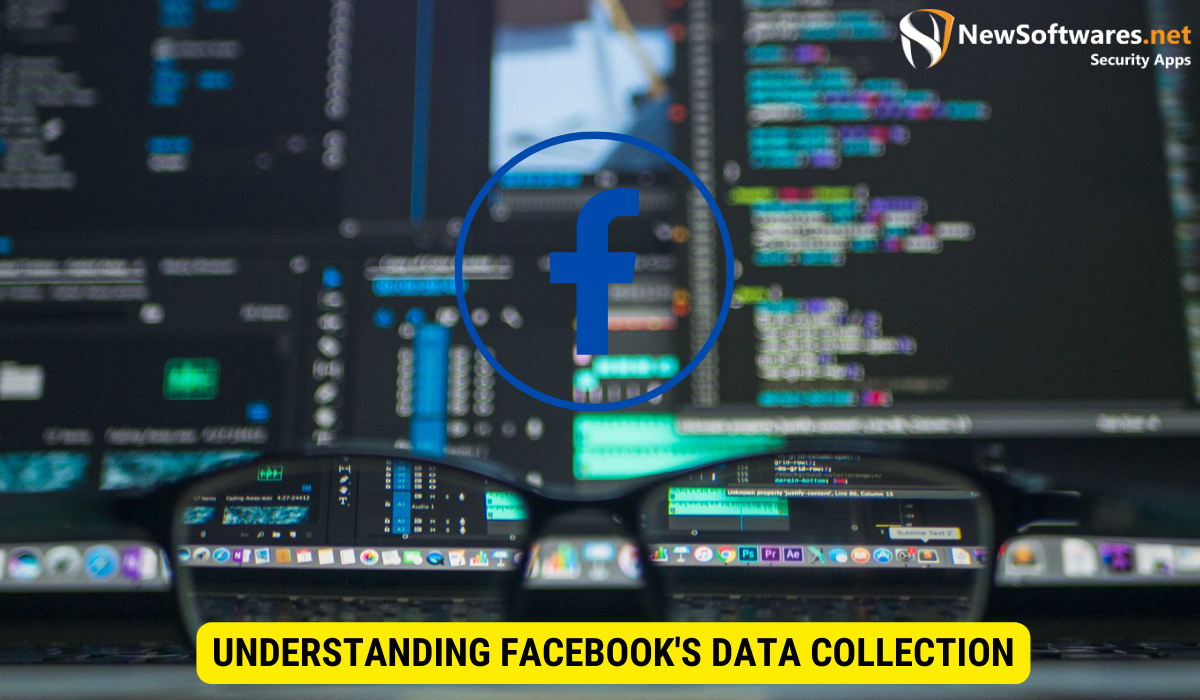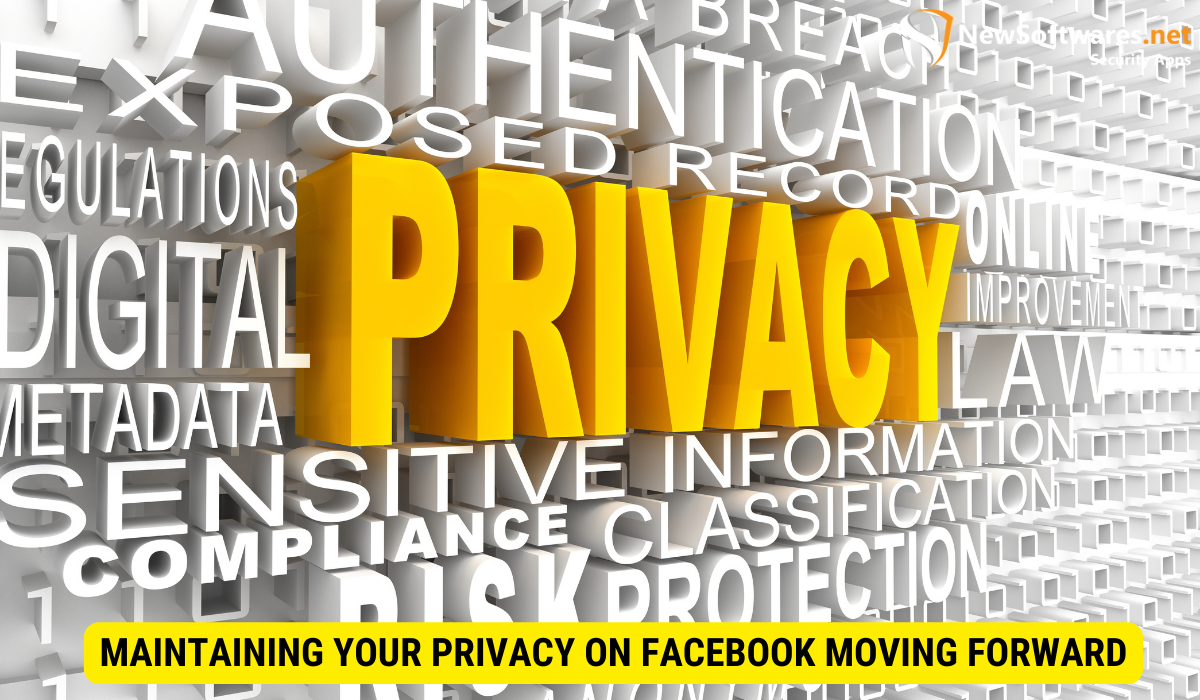Erasing your privacy data from Facebook is crucial to protect your personal information and online security. Follow a step-by-step guide to back up your data, delete personal information, remove app and website history, erase search history, and maintain your privacy settings. Regularly checking and adjusting your privacy settings is essential for ongoing privacy protection.
Understanding Facebook’s Data Collection

Facebook is a platform that collects a vast amount of data from its users. Understanding how this data collection works is essential to taking control of your privacy on the platform.
When it comes to data collection, Facebook leaves no stone unturned. The platform collects various types of data, including your personal information such as name, email, and phone number. But it doesn’t stop there. Facebook tracks your activity on the platform, meticulously recording every post, comment, and like you make. It even goes beyond the platform itself and collects data from the devices you use to access Facebook. Your location, IP address, and other device-related information are all fair game for Facebook’s data collection machinery.
Now, you might wonder why Facebook is so interested in collecting all this data. Well, the answer is multifaceted. One primary purpose is to personalize your experience on the platform. By collecting data about your preferences, interests, and online behavior, Facebook can tailor the content you see to match your tastes. This personalized experience is what keeps users engaged and coming back for more.
But personalization is not the only reason behind Facebook’s data collection frenzy. The platform also uses the data it gathers for research and to improve its services. By analyzing user behavior and trends, Facebook can gain valuable insights that help them enhance the user experience and develop new features. This continuous cycle of data collection and analysis is what keeps Facebook at the forefront of social media innovation.
However, the collection of data has not been without its fair share of controversies. Concerns about privacy and data security have been raised time and time again. With the amount of personal information and sensitive data Facebook holds, the potential for misuse or unauthorized access is a valid concern. Users are left wondering if their data is truly safe in Facebook’s hands.
So, what can you do to protect your privacy in the face of Facebook’s data collection practices? Well, for starters, familiarize yourself with the platform’s privacy settings. Facebook offers a range of options that allow you to control who can see your posts, what information is visible on your profile, and how your data is used for advertising purposes. Taking the time to review and adjust these settings can go a long way in safeguarding your privacy.
Another important step is to be mindful of the information you share on Facebook. Think twice before posting personal details or sensitive data that could be used against you. Remember, once something is out there on the internet, it’s challenging to completely erase its digital footprint.
Lastly, consider using additional privacy tools and technologies to protect your data. From virtual private networks (VPNs) to browser extensions that block tracking cookies, there are various options available that can help you maintain a certain level of privacy while using Facebook.
In conclusion, Facebook’s data collection practices are extensive and far-reaching. While it may seem daunting, understanding how your data is collected and used is crucial in taking control of your privacy. By being aware of the information you share, adjusting privacy settings, and utilizing privacy tools, you can navigate the Facebook landscape with confidence and protect your personal information from falling into the wrong hands.
The Importance of Erasing Your Privacy Data
Erasing your privacy data from Facebook is crucial for safeguarding your personal information and protecting your privacy. Ignoring your privacy settings can lead to potential risks and compromise your online security.
Potential Risks of Ignoring Your Privacy Settings
If you neglect your privacy settings on Facebook, your personal data could be exposed to unauthorized individuals or potentially used for malicious purposes. This can lead to identity theft, online harassment, or invasions of your privacy.
Benefits of Controlling Your Data on Facebook
By taking control of your data on Facebook, you can ensure that you only share information with the intended audience. This allows you to have a more private and secure online presence. Additionally, controlling your data can help prevent unwanted targeted advertising and protect your personal preferences.
Navigating Facebook’s Privacy Settings
Understanding and navigating Facebook’s privacy settings is essential for managing and protecting your privacy on the platform. Here’s how you can locate and control these settings.
Locating Your Privacy Settings
To access your privacy settings on Facebook, you can click on the inverted triangle icon located at the top right corner of the screen. From the drop-down menu, select “Settings & Privacy,” then “Settings.” Under the “Privacy” tab, you’ll find various options to customize your privacy preferences.
Understanding Privacy Setting Options
Facebook offers a range of privacy setting options to control who can see your posts, profile information, and more. You can adjust settings such as who can see your future posts, review tags before they appear on your timeline, and restrict who can find you on Facebook using your email or phone number.
Steps to Erase Your Privacy Data from Facebook
If you’re ready to erase your privacy data from Facebook, follow these step-by-step instructions to ensure a thorough and secure deletion.
Backing Up Your Facebook Data
Before you start deleting your privacy data, it’s essential to back up any valuable information you want to keep. Facebook provides an option to download a copy of your data, including photos, posts, and messages.
Deleting Personal Information
Start by reviewing and deleting any personal information you no longer want to be associated with your Facebook account. This can include outdated contact information, employment history, or education details.
Removing App and Website History
Apps and websites connected to your Facebook account may have access to your data. Review the list of connected apps and websites and remove any you no longer use or trust. Additionally, consider clearing your browsing history to further protect your privacy.
Erasing Search History
Facebook keeps a record of the searches you’ve conducted on the platform. To erase this history, go to your activity log, select “Filter” and choose “Search History.” From here, you can delete individual search entries or clear your entire search history.
Maintaining Your Privacy on Facebook Moving Forward

Once you have erased your privacy data, it’s crucial to maintain your privacy on Facebook going forward. Here are some proactive measures you can take.
Regularly Checking Your Privacy Settings
Make it a habit to periodically check and review your privacy settings on Facebook. Ensure that your preferences align with your desired level of privacy and adjust them as needed.
Limiting the Information You Share
Be mindful of the information you share on Facebook. Consider the potential implications before posting personal details or engaging in discussions that may compromise your privacy.
Understanding Facebook’s Future Privacy Updates
Stay informed about Facebook’s future privacy updates and changes to their data collection practices. Being aware of any new features or options can help you make informed decisions about your privacy on the platform.
Key Takeaways:
- Understanding Facebook’s data collection is crucial for taking control of your privacy.
- Erasing your privacy data helps protect your personal information and online security.
- Familiarize yourself with Facebook’s privacy settings and customize them to your preferences.
- Follow the step-by-step guide to erase your privacy data from Facebook effectively.
- Maintain your privacy by regularly checking your settings and being cautious about the information you share.
Frequently Asked Questions:
-
Can Facebook still collect my data even after I erase it?
While you can erase your privacy data from Facebook, it’s important to understand that the platform may continue to collect data based on your usage and interactions. However, by adjusting your privacy settings and being mindful of what you share, you can minimize the information collected.
-
Should I delete my Facebook account to protect my privacy?
Deleting your Facebook account is an option if you wish to completely remove your presence from the platform. However, keep in mind that this decision also means losing access to the social connections and features Facebook provides. Erasing your data and adjusting your privacy settings may be sufficient for most privacy-conscious users.
-
What are the risks of not backing up my Facebook data?
If you fail to back up your Facebook data before deleting it, you may lose valuable photos, messages, or other content that you may want to retain. It’s crucial to take the time to back up your data so that you have a copy for reference or future use.
-
How often should I review my Facebook privacy settings?
It’s recommended to review your Facebook privacy settings regularly, at least once every few months. By doing so, you can ensure that your preferences are up-to-date and aligned with your desired level of privacy.
-
Does Facebook notify me of privacy updates?
Yes, Facebook typically notifies users of significant privacy updates through in-app alerts or emails. However, it’s also a good practice to stay informed by visiting Facebook’s privacy-related resources regularly.
Conclusion
Taking control of your privacy data on Facebook is essential to protect your personal information and maintain online security. Understanding Facebook’s data collection practices, navigating privacy settings, and following the step-by-step guide to erasing your data will empower you to safeguard your privacy. By staying proactive and mindful of your privacy settings and online behavior, you can maintain a secure and private presence on Facebook.
